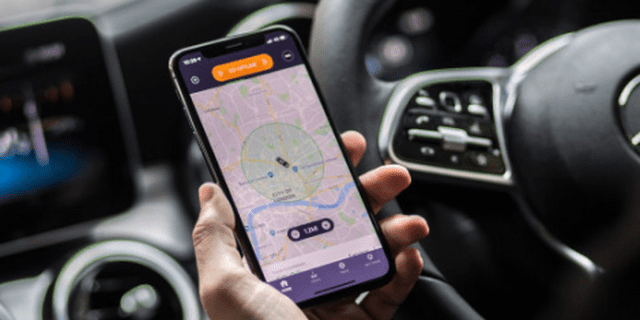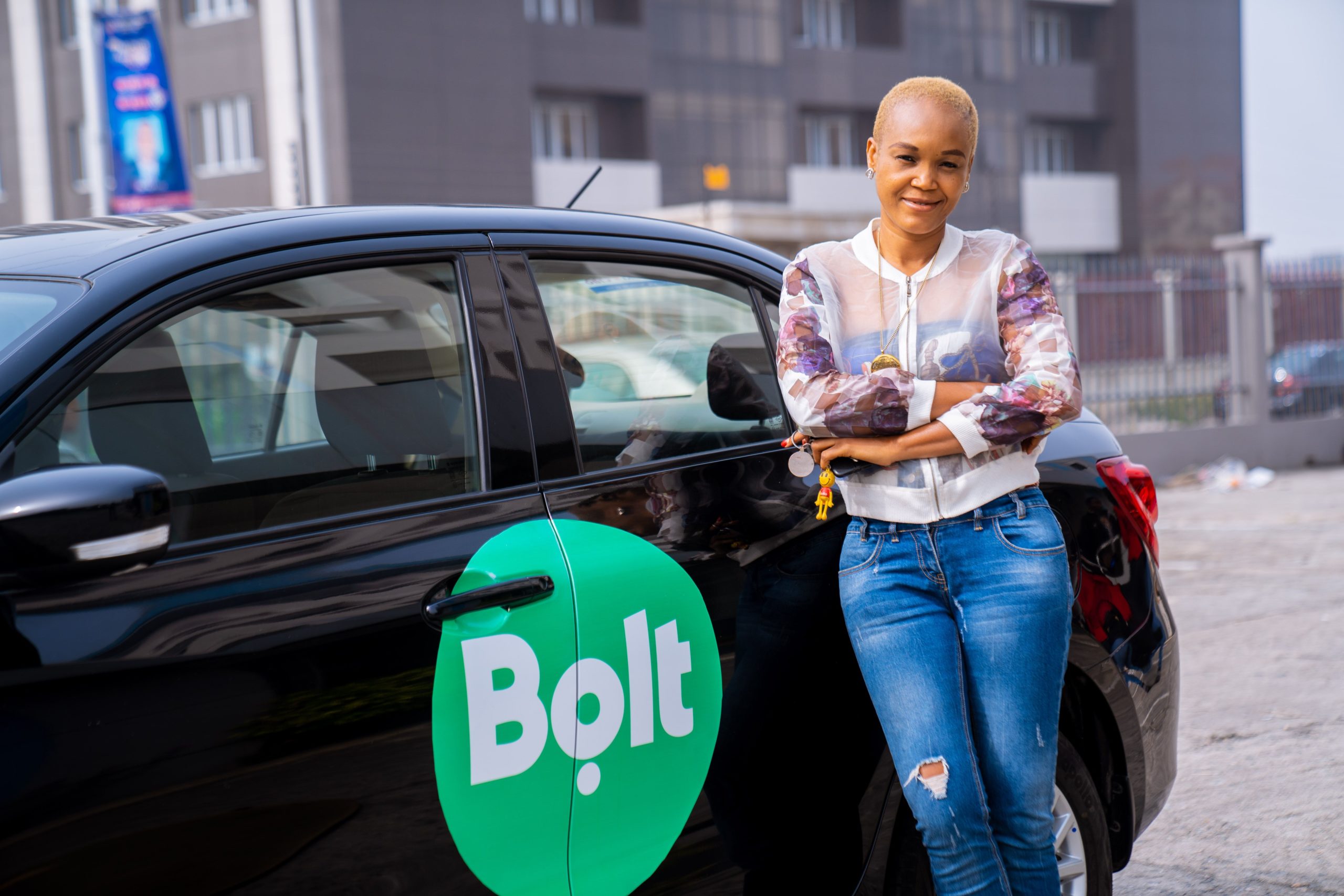E
Ejike Kanife
Guest
As the realities of Nigeria’s fuel price increase co to use to hit home, Bolt drivers in the Southern cities of Calabar and Uyo have made it a policy to put off their air-conditioning during trips. This was disclosed by several riders who used e-hailing services while in those cities.
According to the passengers, the drivers also seem to have permission to negotiate their own fares, usually double what was quoted on the app. One passenger, Ola Dami narrated how he finally agreed to pay nearly double the fare of what was indicated in the app only to be told the double fare does not include air conditioning.
“Do you know that if you book a ride in Calabar, they will not put on the AC for you even after negotiating the price offline? I have ordered twice in Calabar. When the driver comes they will negotiate the price and they will still not put on the AC. I was shocked because in Lagos drivers beg you to put off their AC and if you refuse, they will leave it on,” Ola said.
Another passenger who identified himself as JW explained how the same thing happened to him in Akwa Ibom where the driver even told him to pay another extra if he wanted the air conditioning so much.

“The same thing happened to me in Akwa Ibom, one of the Bolt drivers told me, bro, na there you go sleep o. I booked four different rides and they were all the same things. None of them wants to put on the AC. I saw 3,000 naira on the app, the guy told me he would collect 6,000 naira last, at the end of the day I had to beg him to collect 5,500 naira and still he did not put on the AC. He said if I wanted the AC so much I would have to pay another extra for it,” he said.
It is no longer news that offline negotiations have become commonplace in taxi-hailing. Neither is the trend of putting off air conditioning. But it is hardly the case that both trends existed together.
In Lagos for instance, drivers who accept the app fares believe putting off the air conditioning would help them save fuel and would likely ask passengers for permission to put it off. In other cases, the driver could start the trip without the AC but put it on once the passenger requests it.
In Abuja, Technext reported that drivers have decided to take matters into their own hands, setting aside Uber and Bolt’s official fares and instituting/negotiating higher fares for trips. This was made known by a group called the Concerned Abuja Pilots.
See also: Abuja e-hailing drivers snub Uber/Bolt, set new N450 per kilometre rate for rides
According to the drivers, the decision to have their price regime was occasioned by the persistent fuel price increase. They also claim that it follows the refusal of app companies like Uber and Bolt to increase fares.
“For short trips, the price shall be 450 naira per kilometre. For far trips, it shall be 400 naira per kilometre. Drivers are hereby advised to accept rides and immediately renegotiate them to match the prices on the circular. Otherwise, cancel the trip,” the group said in a circular.

Comparatively, the fare per kilometre on Uber is currently around 150 naira.
However, drivers who negotiate a higher fare than what was recommended on the app often feel obliged to put on the air conditioning since the passengers have paid higher fares.
A passenger narrated how he endured two weeks of navigating around Calabar in e-hailing vehicles that lacked basic comfort.
“My experience with Bolt drivers in Calabar, I really suffered. Because I spent two weeks there and I travelled from one place to another. If you want AC you pay a different special money. They call it comfort money. The thing shocked me. If riders like let them cancel, if you hail another driver it will be the same thing,” he said.
Another driver, ThankGod told Technext that apart from conserving fuel, air conditioning damages the vehicle engine. In such instances, drivers face major financial expenses in these economically bleak times.
“The bitter truth is that AC kills the engine. And engine now is a no-go area for e-hailing drivers. The Corolla engine is about 1.5 million naira now. Even I am driving under duress and under grace. If anything happens to my engine I will just pack up the car and look for a salary job,” ThankGod said.
It appears that not only has offline negotiation come to stay, but it appears to be the future if the opinion of the drivers is anything to go by.
Ride-hailing companies, Bolt and Uber also appear to be helpless in the face of the increasingly popular trend.

In all, stakeholders are eager to see what policy direction the ride-hailing companies will adopt in response to the new fare negotiation and air conditioning regime since it reduces the premium quality of rides promised by the e-hailing companies.
Back in January, Technext reported that Bolt threatened to suspend the accounts of drivers who negotiate offline trips. This was even as the company introduced a new offline trip cancellation feature in its app.
With the new feature, riders can cancel a trip by selecting the option ‘the driver asked to pay off-the-app’ under specific circumstances.
Although the company claimed that the move would deter riders and drivers from negotiating trips offline trips, the practice seems to be gaining popularity across Nigerian cities 12 months later.
According to the passengers, the drivers also seem to have permission to negotiate their own fares, usually double what was quoted on the app. One passenger, Ola Dami narrated how he finally agreed to pay nearly double the fare of what was indicated in the app only to be told the double fare does not include air conditioning.
“Do you know that if you book a ride in Calabar, they will not put on the AC for you even after negotiating the price offline? I have ordered twice in Calabar. When the driver comes they will negotiate the price and they will still not put on the AC. I was shocked because in Lagos drivers beg you to put off their AC and if you refuse, they will leave it on,” Ola said.
Another passenger who identified himself as JW explained how the same thing happened to him in Akwa Ibom where the driver even told him to pay another extra if he wanted the air conditioning so much.

“The same thing happened to me in Akwa Ibom, one of the Bolt drivers told me, bro, na there you go sleep o. I booked four different rides and they were all the same things. None of them wants to put on the AC. I saw 3,000 naira on the app, the guy told me he would collect 6,000 naira last, at the end of the day I had to beg him to collect 5,500 naira and still he did not put on the AC. He said if I wanted the AC so much I would have to pay another extra for it,” he said.
Bolt drivers say they are only adjusting to the harsh realities
It is no longer news that offline negotiations have become commonplace in taxi-hailing. Neither is the trend of putting off air conditioning. But it is hardly the case that both trends existed together.
In Lagos for instance, drivers who accept the app fares believe putting off the air conditioning would help them save fuel and would likely ask passengers for permission to put it off. In other cases, the driver could start the trip without the AC but put it on once the passenger requests it.
In Abuja, Technext reported that drivers have decided to take matters into their own hands, setting aside Uber and Bolt’s official fares and instituting/negotiating higher fares for trips. This was made known by a group called the Concerned Abuja Pilots.
See also: Abuja e-hailing drivers snub Uber/Bolt, set new N450 per kilometre rate for rides
According to the drivers, the decision to have their price regime was occasioned by the persistent fuel price increase. They also claim that it follows the refusal of app companies like Uber and Bolt to increase fares.
“For short trips, the price shall be 450 naira per kilometre. For far trips, it shall be 400 naira per kilometre. Drivers are hereby advised to accept rides and immediately renegotiate them to match the prices on the circular. Otherwise, cancel the trip,” the group said in a circular.

Comparatively, the fare per kilometre on Uber is currently around 150 naira.
However, drivers who negotiate a higher fare than what was recommended on the app often feel obliged to put on the air conditioning since the passengers have paid higher fares.
A passenger narrated how he endured two weeks of navigating around Calabar in e-hailing vehicles that lacked basic comfort.
“My experience with Bolt drivers in Calabar, I really suffered. Because I spent two weeks there and I travelled from one place to another. If you want AC you pay a different special money. They call it comfort money. The thing shocked me. If riders like let them cancel, if you hail another driver it will be the same thing,” he said.
Another driver, ThankGod told Technext that apart from conserving fuel, air conditioning damages the vehicle engine. In such instances, drivers face major financial expenses in these economically bleak times.
“The bitter truth is that AC kills the engine. And engine now is a no-go area for e-hailing drivers. The Corolla engine is about 1.5 million naira now. Even I am driving under duress and under grace. If anything happens to my engine I will just pack up the car and look for a salary job,” ThankGod said.
Is negotiating fares the future of ride-hailing in Nigeria?
It appears that not only has offline negotiation come to stay, but it appears to be the future if the opinion of the drivers is anything to go by.
Ride-hailing companies, Bolt and Uber also appear to be helpless in the face of the increasingly popular trend.

In all, stakeholders are eager to see what policy direction the ride-hailing companies will adopt in response to the new fare negotiation and air conditioning regime since it reduces the premium quality of rides promised by the e-hailing companies.
Back in January, Technext reported that Bolt threatened to suspend the accounts of drivers who negotiate offline trips. This was even as the company introduced a new offline trip cancellation feature in its app.
With the new feature, riders can cancel a trip by selecting the option ‘the driver asked to pay off-the-app’ under specific circumstances.
Although the company claimed that the move would deter riders and drivers from negotiating trips offline trips, the practice seems to be gaining popularity across Nigerian cities 12 months later.
